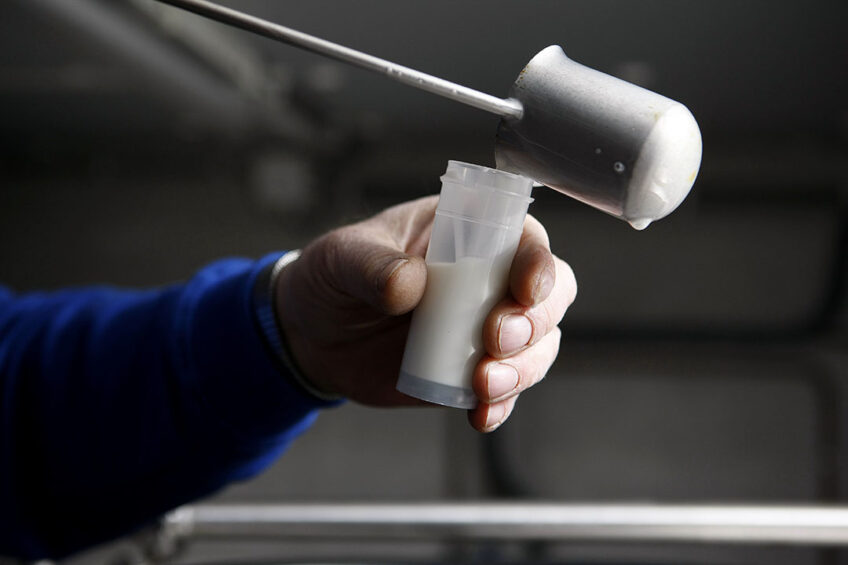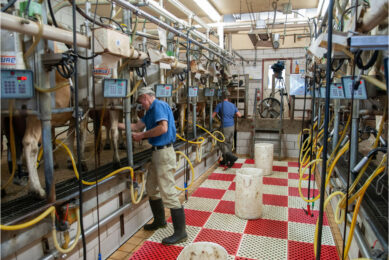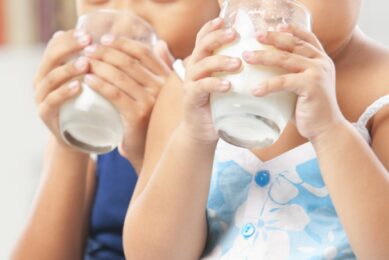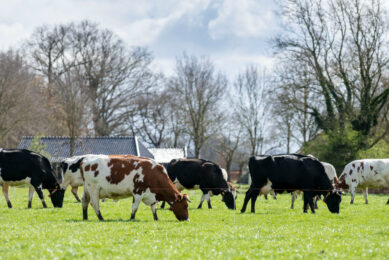Only 62% of milk sold in India meets quality standards

Even though India is the largest milk producer in the world, milk sold in the country is not the standard set up by Food Safety and Standards Authority of India (FSSAI).
A study conducted in the country by FSSAI revealed that only 62.3% milk sold meets the standard, which is far below the global average.
The report titled ‘National Milk Safety and Quality Survey 2018’ also found harmful contaminants, such as aflatoxin-M1, antibiotics and pesticides in major milk brands. However, the statement released by the authority did not name any branded milk producer.
Of the total milk sample collected 40.5% samples were processed milk, whereas the remaining was raw milk.
FSSAI CEO Pawan Agarwal said that though the presence of fats and SNF (solids-not-fat) were not as per the standards specified, the organized sector will take action and comply with the standards in the next 6-8 months.
There is a general fear among the common masses that milk is adulterated, but the study clearly found that contamination is a problem and causing more trouble than adulteration. The contaminated milk is being sold by big brands, causing concerns, as people are not aware of the danger of consuming contaminated milk.
The CEO also said that this is the first time that such an in-depth survey has been made of the residue in the milk.

No large scale contamination found
The study also found that there is no large scale milk adulteration in the country, as only 12 samples out of 6,432 samples of milk were adulterated, which was found unsafe and not fit for human consumption.
Of the 12 samples, six samples were found adulterated with hydrogen peroxide, three with detergents, two with urea and one sample was found to have neutralizers.
Majority of the adulterated samples came from Telangana state which reported nine unsafe milk samples, two unsafe milk samples were found in Madhya Pradesh and one in Kerala.
According to the study aflatoxin M1 residues beyond permissible limits was found in 368 milk samples of the total 6432 samples, which represent 5.7%. FSSAI also said that aflatoxin M1 comes in the milk through feed and fodder, not regulated in the country.
Tamil Nadu, Delhi and Kerala states were recorded the highest levels of aflatoxin M1 with 88 samples out of 551 samples, 38 samples out of 262 samples and 37 samples out of 187 samples respectively.
FSSAI also underlined in its study that the problem on aflatoxin M1 was more dominant in processed milk rather raw milk.
Top three states with highest level of antibiotics
Madhya Pradesh, Maharashtra and Uttar Pradesh (UP) were the top three states with highest levels of antibiotics residues. Madhya Pradesh tops with 23 samples out of 335 samples, Maharashtra with 9 samples out of 678 samples and UP with 8 samples out of 729 samples. Only one raw milk sample in Kerala was found to contain pesticide residue above the permissible level.
The study further revealed that 77 (out of 6,432) samples, that 1.2 % of the samples had residues of antibiotics above the permissible limits.
This is the first time that a quantitative analysis of all samples that failed on account of adulterants and contaminants has been done. The level of adulterants and contaminants in failed samples is not high, therefore unlikely to pose serious threat to human health, FSSAI said in a statement.
Zero tolerance on adulteration
FSSAI also stressed that it is committed to zero tolerance for any adulteration and contamination of milk.
The detailed study will help the authority to identify hot spots, so that more intensified efforts for surveillance and enforcement could be taken up in such areas.
FSSAI has recently discussed the study with stakeholder and there was a unanimous view that incident of spurious milk as reported in the media are restricted to few areas and are occurs during festival times when there is large demand-supply gap. Such incidents can only be tackled by having strict vigil in such areas. During the stakeholders’ group meeting talks on ammonium sulphate took place. Its presence in the milk is absolutely safe and not a contaminant as earlier thought. It was noted that ammonium sulphate is allowed as an additive in certain foods in several countries. Overall, above 93% of the samples which is 5976 (out of 6,432) samples were found to be absolutely safe for human consumption.
Milk quality has low SNF
Over 41% milk samples out of the total milk samples that includes raw and processed samples were found non-compliant on account of low fat or low SNF (solid not fat) or both. Though it is safe for consumption, it falls short of one or another quality parameter.
Proportion of fat and solid non-fat (SNF) in milk varies widely by species and depends on breed as well as quality of feed and fodder. Cattle must be properly fed and good farm practices must be adopted to improve the amount of fat and SNF in milk. FSSAI said it was surprising to see that low SNF parameters in standardized/processed milk, while it is understood the non-compliance on these parameters in raw milk due to dilution of milk with water.
Presence of maltodextrin, sugar
Maltodextrin was found in 156 milk samples out of the total samples and sugar was found in 78 (out of 6432) samples. Though Maltodextrin and sugar are not unsafe and do not represent a threat to human health, they are mainly confined to processed milk and added by dairy brands to raise the level of fat and SNF.
Milk samples collected
A total of 6,432 samples of milk were collected from 1,103 towns/cities over a period of six months between 18 May – 18 October in 2018. All samples were tested on the spot for critical parameters of quality and safety by proficient analysts that are National Accreditation Board for Testing and Calibration Laboratories (NABL) accredited and FSSAI-recognised laboratories using high-end equipment and employing established testing protocols, FSSAI statement added.
The study was also carried out by an independent third party agency. The results indicated clearly that milk being sold in India is largely safe for consumption. This is contrary to wide-spread perception of large scale milk adulteration in the country based on deceitful campaign and unsubstantiated reports, the FSSAI statement stressed.
Join 13,000+ subscribers
Subscribe to our newsletter to stay updated about all the need-to-know content in the dairy sector, two times a week.










